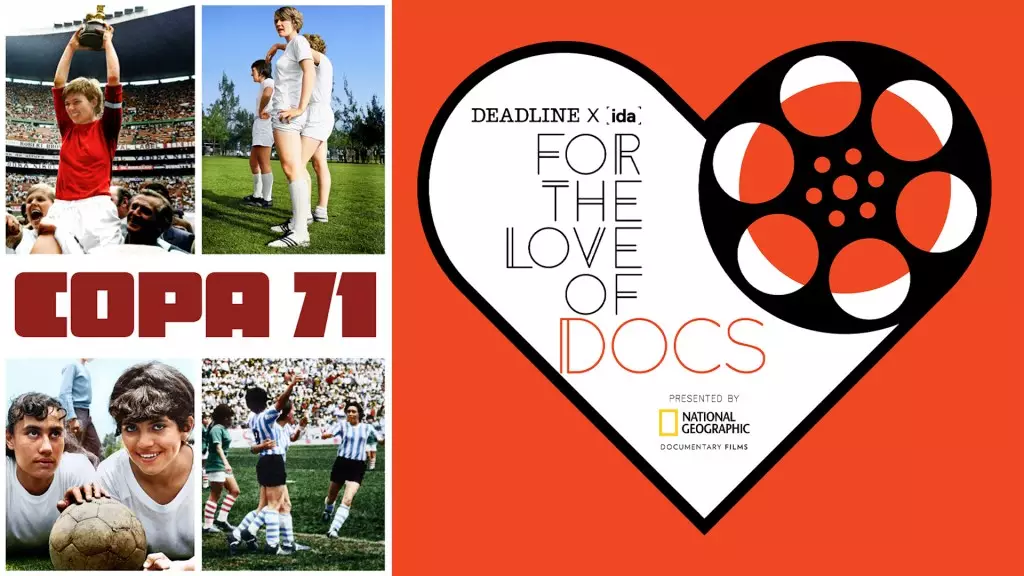In the annals of sports history, few events have been as overlooked as the unofficial Women’s World Cup soccer tournament held in 1971 at the Azteca Stadium in Mexico City. This event was not merely a game; it represented a defining moment for women in sports. With over 110,000 enthusiastic fans in attendance, the Copa 71 remains one of the largest gatherings for a women’s sporting event ever documented. Despite its monumental status, the event has largely faded from public consciousness, overshadowed by historical narratives that frequently neglect female achievements in sports. The documentary *Copa 71*, directed by Rachel Ramsay and James Erskine, endeavors to resurrect this vital chapter in women’s sports history, exploring both its triumphs and tribulations.
The origins of *Copa 71* can be traced back to a serendipitous conversation in which Victoria Gregory’s husband heard a radio story featuring a member of the England women’s team. Intrigued by this lesser-known narrative, he encouraged Gregory to delve deeper into what he described as “an unbelievable story.” This piqued interest led to an extensive effort by the filmmakers to uncover archival footage of the tournament, which pitted national teams from Mexico, England, Argentina, France, Italy, and Denmark against each other.
Key to crafting a compelling narrative was establishing trust among the former players, many of whom were reluctant to share their stories. Gregory recounted how initial conversations with the England team were met with skepticism. Many players had kept their participation secret from their families, highlighting the stigma surrounding female athletes at the time. As interviews progressed, the filmmakers worked diligently to reassure the players that their accounts would be treated with the respect and dignity they deserved, focusing on their triumphs and the harsh realities they faced.
One of the documentary’s poignant themes is the media’s treatment of women athletes during the 1970s. The players of the Copa 71 faced horrendous treatment, often reduced to mere objects of sensationalism rather than celebrated athletes. Coverage of their games was frequently tainted by sexualization and derogatory narratives aimed at undermining their skills. This negative portrayal was compounded by the indifference of FIFA, the sport’s globally recognized governing body, which refused to sanction an official Women’s World Cup until 1991, nearly two decades later.
This historical context is crucial in understanding the volatile relationship between women’s sports and the media. As director Ramsay emphasized, the issues of power dynamics, sexism, and exploitation in sports are far from a relic of the past. Recent events, including the controversial incident involving Luis Rubiales during the 2023 Women’s World Cup medal ceremony in Spain, reveal how little progress has truly been made. This reiteration of misogyny serves as a reminder of the battles female athletes continue to fight against gender discrimination.
Despite the overwhelming challenges, Copa 71 illuminated the undeniable potential of women’s sports to draw significant audiences. Although the event attracted substantial viewership, the players did not reap the benefits. The documentary showcases incidents, such as the Mexican team’s temporary strike in pursuit of fair compensation for their efforts, underscoring disparities in how women’s sports were valued compared to their male counterparts.
Erskine, one of the film’s directors, posits that the narrative transcends fiscal matters; it fundamentally addresses issues of control and autonomy in an environment that frequently relegates female athletes to the margins. In a powerful commentary on the exploitation of players in sports, he articulates that the struggle for recognition goes beyond financial gain and ventures into the realm of personal dignity and the right to self-determination.
Ultimately, *Copa 71* serves as both a celebration and a reminder of the challenges faced by women in sports throughout history. By shedding light on the tournament and the players that participated, the documentary hopes to inspire future generations and encourage ongoing conversations about gender equity in sports. Just as the players of 1971 fought not only for victory on the field but for recognition and respect, today’s female athletes continue to carry the torch, advocating for a more inclusive and equitable environment in athletics.
As we reflect on the lessons of the past, it is vital to acknowledge and amplify stories like those of Copa 71, ensuring they are no longer consigned to the shadows of history. In doing so, we not only honor the sacrifices and achievements of those who came before us but also pave the way for a brighter future in women’s sports.



Leave a Reply